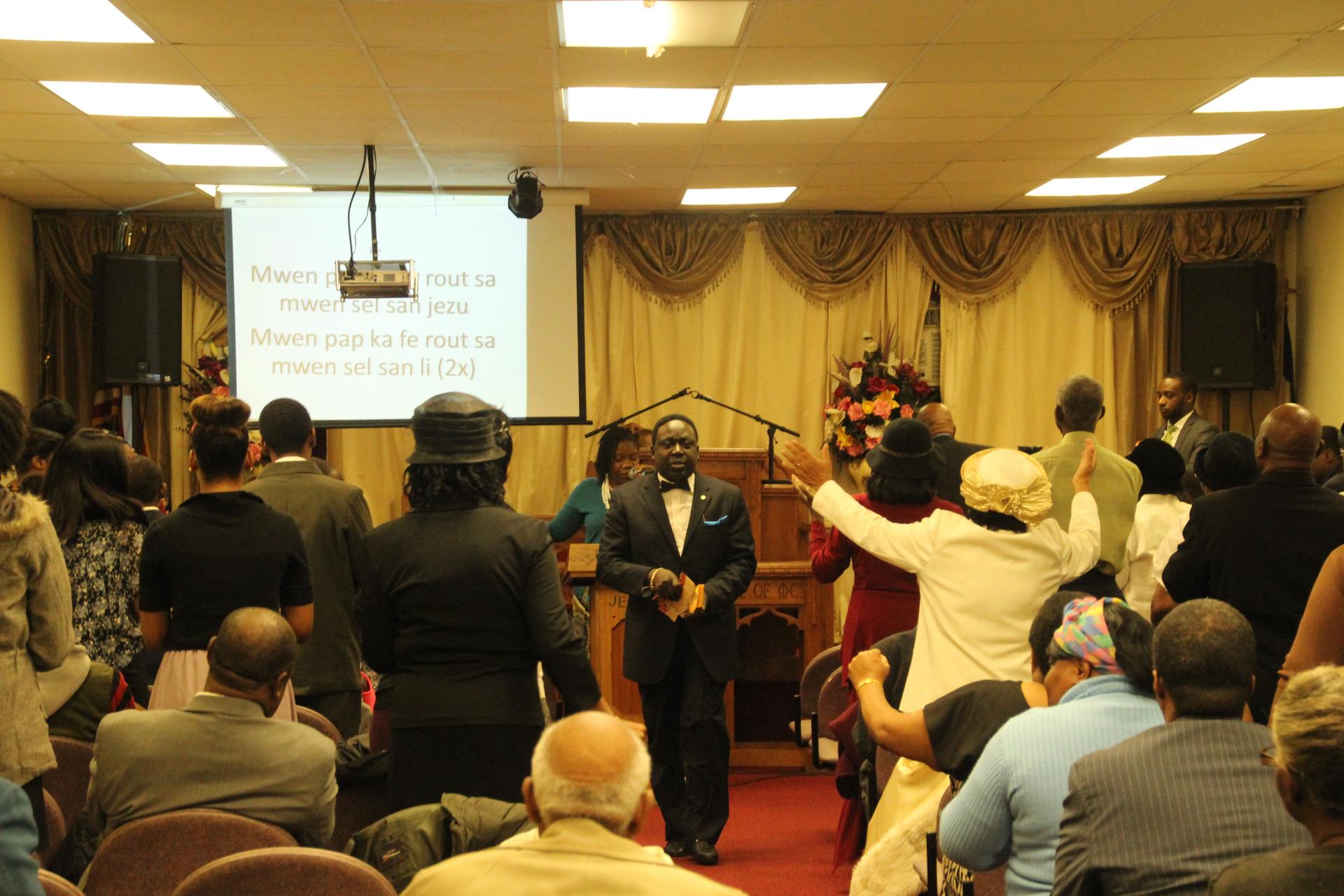Here’s why a court ruling in the Dominican Republic is spurring international protests
Eglise de Dieu, a church in Harlem, has a congregation of around 200 people, most of whom have roots in Haiti. Songs alternate between English and Haitian Creole, with Creole lyrics projected.
On a recent evening in Brooklyn's East Flatbush neighborhood, about a dozen Haitian pastors gathered. Their plan: to organize a response to a recent ruling by the constitutional court in the Dominican Republic.
The ruling tightens a 2010 law denying citizenship to people born to parents who are not Dominican. It applies the law retroactively to anyone born after 1929. And it affects about 250,000 people — most of whom have roots in Haiti.
The move is part of a long and intensifying debate in the Dominican Republic over undocumented workers and their children.
Now, the ruling is reverberating in New York City, home to large Haitian and Dominican immigrant communities.
One person leading protests against the ruling in New York is Bishop Emanuel Denis. He says as soon as he learned about the court's decision, he started making calls.
“I began to say, 'Okay, as ministers, as shepherds, you know, we have to do something. We cannot stay passive. We have to take action, we have to cry against that,'” he says.
International rights groups call the ruling racist. In the Dominican Republic, people are evenly split over it.
And in New York, Haitian and Dominican immigrants are already uniting against the ruling.
Recently, a crowd protested the court ruling in Times Square, near the Dominican Consulate. Signs in Creole, Spanish, and English read, “Dominican Republic, Stop the Apartheid” and “No to Ethnic Cleansing.”
Longtime Haitian activists here are helping organize the protests — people like Lord Divers. And he says it’s not common to see Haitians so united on an issue. Politics can often split the community here — with people, say, for or against former president Jean-Bertrand Aristide, or the current president, Michel Martelly.
“The difference is, with our group, you have all those people in one group, and all those people are fighting for only one cause: human rights and human dignity,” he says.
New activists are stepping up, too. A white Columbia University grad student, who spent time in the Dominican Republic, posted a YouTube message arguing against the law. The video (see below) closes with a series of young Dominicans saying “Eso no se hace,” or “You don’t do that” in Spanish.
The video spawned a Facebook page and a recent conference at Columbia that drew a variety of people, including many Dominican Americans. Raquel Batista, a lawyer and immigrant rights activist here, says she and other Dominican Americans have been active on this issue for a while.
“There’s definitely been a growing group of supporters here in the Dominican community for a very, very, very long time,” she says.
That support doesn’t surprise Edward Paulino, a professor at John Jay College who focuses on Haitian-Dominican issues. He says that Dominicans, especially undocumented immigrants, connect with Haitians who now find themselves in this legal limbo over citizenship.
Paulino also knows these connections between the Dominican Republic and Haiti run deep back home. Recently, he was on the border that divides the two countries on the island of Hispaniola. Paulino said people there told him to deliver a message to the wider world.
“Tell the people out wherever you go that we have a history of working together. We don’t like the ruling, but here real life is about coexisting,” Paulino says they told him. “It’s really the only thing they’ve known for more than … 300 years, and that is trading with each other and knowing each other.”
The Dominican constitutional court has given the country’s election board one year to review civil registries and identify whose citizenship could be revoked under the new ruling. The old connections along the border, and the newly energized activists in the US, are set to be tested.
We want to hear your feedback so we can keep improving our website, theworld.org. Please fill out this quick survey and let us know your thoughts (your answers will be anonymous). Thanks for your time!
